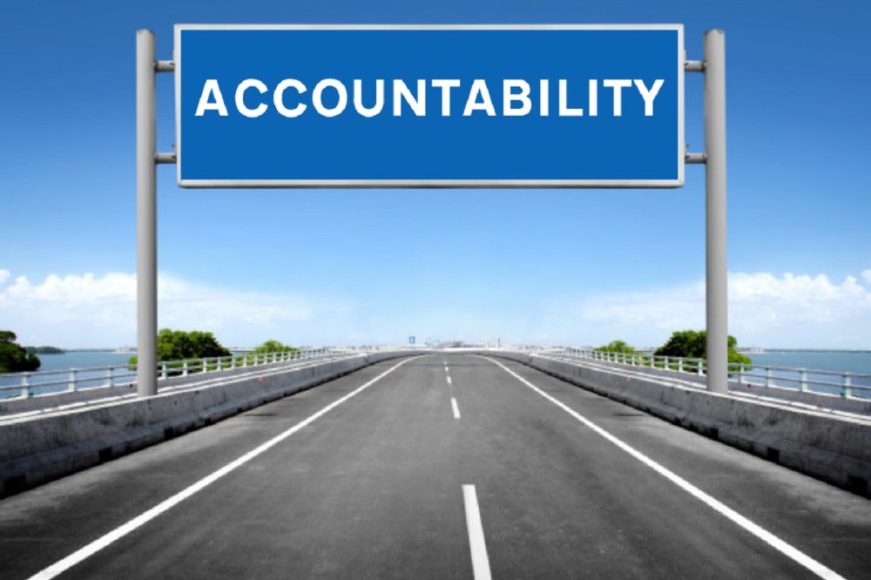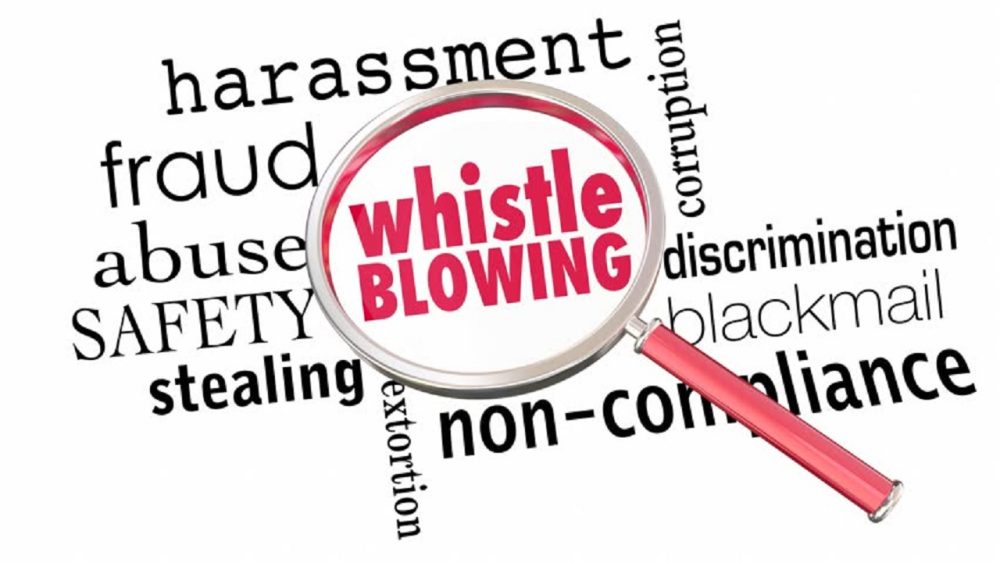Corporate Accountability and Whistleblowing
Safeguarding Transparency and Ethical Standards
Corporate accountability and whistleblowing play crucial roles in ensuring transparency, integrity, and ethical conduct within organizations. In today’s complex business landscape, where corporate scandals and misconduct continue to make headlines, it is more important than ever to emphasize the significance of holding corporations accountable for their actions.
This article explores the concept of corporate accountability, the role of whistleblowing in uncovering wrongdoing, and the importance of fostering a culture that encourages whistleblowing as a means of promoting transparency and ethical standards.
Understanding Corporate Accountability:
Corporate accountability encompasses the principles and practices that govern the behavior of corporations and their responsibility towards stakeholders and society as a whole. It involves the idea that companies should not only pursue profitability but also operate in a manner that aligns with ethical standards, legal requirements, and societal expectations.
Corporate accountability extends beyond financial transparency and legal compliance to encompass a broader commitment to responsible business practices.
A. Financial Transparency:
Financial transparency is a crucial aspect of corporate accountability. It involves providing accurate and comprehensive information about a company’s financial position, performance, and governance to stakeholders, including shareholders, investors, and regulators.
Transparent financial reporting ensures that stakeholders have access to reliable information to make informed decisions and assess the company’s financial health.
B. Legal Compliance:
Corporate accountability requires companies to adhere to applicable laws and regulations governing their operations. This includes compliance with labor laws, environmental regulations, consumer protection laws, anti-corruption laws, and other legal frameworks.
Failure to comply with these regulations can lead to legal repercussions, reputational damage, and loss of public trust.
C. Ethical Decision-Making:
Ethical decision-making is a fundamental aspect of corporate accountability. It involves considering the ethical implications of business decisions and acting in a manner that upholds moral values, integrity, and social responsibility.
Ethical conduct goes beyond legal compliance and encompasses fair business practices, respect for human rights, environmental sustainability, and the well-being of all stakeholders.
D. Social Responsibility:
Corporate accountability includes a commitment to social responsibility. Companies are expected to consider the social and environmental impacts of their operations and take actions that contribute positively to society.
This may involve initiatives related to sustainability, community development, philanthropy, and ethical sourcing.
E. Stakeholder Engagement:
Accountable corporations recognize the importance of engaging and considering the interests of various stakeholders, including employees, customers, suppliers, local communities, and the broader society.
Stakeholder engagement involves actively seeking input, incorporating diverse perspectives, and addressing the concerns and expectations of stakeholders in decision-making processes.
F. Corporate Governance:
Effective corporate governance structures are essential for ensuring accountability within organizations. Corporate governance refers to the system of rules, practices, and processes by which a company is directed and controlled.
It involves the establishment of clear roles and responsibilities, the presence of independent oversight, transparent decision-making, and mechanisms to hold management accountable.
G. Performance Measurement and Reporting:
Accountable corporations implement systems to measure, monitor, and report on their performance, not only in financial terms but also in terms of environmental, social, and governance (ESG) factors.
ESG reporting provides transparency and accountability by disclosing information on the company’s environmental impact, social initiatives, diversity and inclusion efforts, employee well-being, and governance practices.
H. Repercussions for Misconduct:
Accountable corporations are expected to take responsibility for any misconduct that occurs within their organization. This includes promptly addressing issues, conducting thorough investigations, implementing corrective measures, and holding individuals accountable for their actions.
Taking appropriate action in response to misconduct demonstrates a commitment to accountability and helps rebuild trust.
Conclusion – Understanding Corporate Accountability:
Corporate accountability means businesses take responsibility for their actions. It includes being honest about finances, following the law, making ethical choices, and engaging with stakeholders. Companies must also focus on social responsibility, good governance, and measuring their performance. When they fail, there should be consequences for misconduct.
Ignoring these responsibilities can lead to serious problems. The Risks of Working Under the Table highlight this issue. Operating without transparency can damage trust, harm a company’s reputation, and result in legal trouble. By acting responsibly, businesses can build trust, improve their image, and create a sustainable future.
Whistleblowing – Shedding Light on Wrongdoing:
Whistleblowing is the act of exposing misconduct or illegal activities within an organization to the relevant authorities or the public.
Whistleblowers are individuals who witness unethical behavior, fraud, corruption, or any form of wrongdoing and choose to disclose the information, often at great personal risk. They play a vital role in uncovering corporate malfeasance that might otherwise go unnoticed.
A. Types of Whistleblowing:
Whistleblowing can occur in various forms:
Internal Whistleblowing: Employees report concerns or misconduct to individuals within the organization, such as supervisors, managers, or an internal ethics hotline.
External Whistleblowing: Whistleblowers disclose information to external entities, such as government agencies, regulatory bodies, media outlets, or non-governmental organizations.
B. Whistleblowing Protections:
Recognizing the importance of whistleblowing, many jurisdictions have implemented legal protections to safeguard individuals who come forward with information.
Whistleblower protection laws vary across countries but commonly include safeguards against retaliation, such as termination, demotion, or harassment. These protections aim to encourage employees to speak up without fear of reprisals, ensuring their rights and safety.
The Benefits of Whistleblowing:
Whistleblowing serves as a powerful mechanism to combat corporate misconduct and promote accountability. Its benefits extend to various stakeholders and the wider society:
A. Uncovering Wrongdoing:
Whistleblowers often possess critical information that can expose fraudulent activities, corruption, safety violations, environmental harm, or other unethical practices.
By shedding light on these issues, whistleblowers serve as catalysts for change, prompting investigations and actions that can help rectify the wrongs and prevent further harm.
B. Preventing Harm and Losses:
Timely whistleblowing can prevent substantial harm and financial losses. By bringing attention to misconduct, organizations can take necessary corrective measures to mitigate risks, protect stakeholders, and prevent reputational damage.
Whistleblowers’ actions can save lives, safeguard the environment, and preserve the financial well-being of organizations and individuals.
C. Strengthening Ethical Culture:
A culture that encourages and protects whistleblowing fosters ethical behavior within organizations. When employees feel supported in reporting misconduct, it creates an atmosphere of accountability and integrity.
It sends a powerful message that unethical actions will not be tolerated, encouraging employees to act in accordance with organizational values.
D. Promoting Transparency and Trust:
Whistleblowing enhances transparency within corporations and builds trust with stakeholders. When organizations take whistleblowing seriously and investigate allegations thoroughly, it demonstrates their commitment to accountability and ethical conduct.
This transparency can lead to increased confidence from investors, customers, and the public.
Challenges and Solutions:
While whistleblowing plays a vital role in upholding corporate accountability, it is not without challenges. Recognizing and addressing these obstacles is crucial to creating an environment conducive to whistleblowing. Some of the common challenges include:
A. Fear of Reprisals:
Whistleblowers often face the risk of retaliation, including job loss, damaged reputations, or legal consequences. To address this challenge, comprehensive whistleblower protection laws must be enacted and enforced to shield individuals from such retaliation.
Organizations should also establish robust internal reporting mechanisms and whistleblower hotlines that offer anonymity and protection.
B. Organizational Culture:
Creating a culture that encourages openness and accountability is essential. Organizations should develop clear policies that promote whistleblowing and provide training to employees on the importance of reporting misconduct. Senior management should lead by example and actively demonstrate their commitment to ethical conduct.
C. Reporting and Investigation Mechanisms:
Organizations must establish effective channels for reporting and investigating allegations of misconduct. This includes creating anonymous reporting systems, appointing independent investigative bodies, and ensuring that whistleblowers’ concerns are addressed promptly and thoroughly.
D. Public Perception:
Whistleblowing often carries negative connotations, with some individuals viewing whistleblowers as disloyal or troublemakers. Efforts should be made to change this perception by highlighting the value and importance of whistleblowing in protecting the public interest and promoting ethical practices.
Conclusion:
Corporate accountability and whistleblowing are intertwined, with the latter serving as a critical tool to uphold the former. Whistleblowers act as ethical gatekeepers, ensuring that organizations are held responsible for their actions.
Fostering a culture that encourages and protects whistleblowing is vital to promoting transparency, ethical behavior, and the overall well-being of organizations and society.
By recognizing the benefits of whistleblowing and addressing the associated challenges, we can create a corporate landscape that is more accountable, responsible, and ethically driven.









